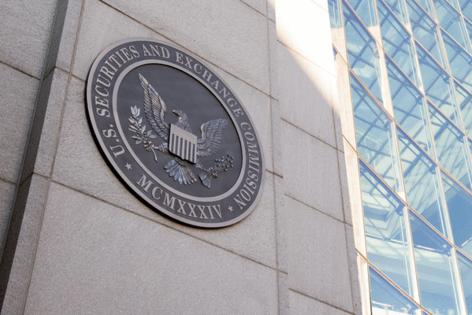Crypto bill seen hindering fraud prosecutions, states warn
Published in Business News
Just as federal enforcement against digital-asset companies has dropped precipitously, state authorities are voicing concern that their ability to prosecute crypto criminals will soon be vastly diminished.
Regulators from Alabama to Montana are warning that crypto market-structure legislation currently before Congress could diminish their ability to pursue wrongdoers.
The timing couldn’t be more perilous, with crypto fraud and criminal activity heating up worldwide as bad actors seek to take advantage of soaring investor demand for digital asset with prices back near all-time highs.
The draft of the U.S. Senate’s market-structure bill — the Responsible Financial Innovation Act — doesn’t give state agencies implicit authority to supervise crypto companies — an oversight that might mean that they may not be able to prosecute them for fraud, according to Amanda Senn, director of the Alabama Securities Commission. The bill also changes the definition of what constitutes an investment contract, which could let criminals wiggle out of being prosecuted, warns Montana State Auditor James Brown.
“The dam is going to break,” Alabama’s Senn said. “If you don’t have the states paying attention and prosecuting fraud, nobody is looking out.”
Federal enforcement against the crypto industry has dramatically dropped since the Trump administration promised to ease oversight that industry proponents said harmed growth.
The U.S. Securities and Exchange Commission has slashed its enforcement staff and closed many crypto-related investigations and dismissed multiple lawsuits. As of Aug. 31, the SEC has initiated nine crypto-related enforcement actions, down from 33 last year and a high of 47 in 2023, according to Cornerstone Research. At the current pace, this year would see the lowest level of crypto-related enforcement activity since 2017, when the SEC initiated four actions.
Criminal activity has been heating along with prices. In the first half of this year, more than $2.1 billion was stolen in at least 75 separate hacks and exploits worldwide — making those six months the worst first half on record, according to crypto risk management and compliance provider TRM Labs. That’s roughly 10% higher than the previous high set in 2022 and adds up to nearly all of the losses in 2024, according to TRM.
“What we are hearing from people, with all the national talk about the benefits of digital currencies and the theory that you are going to get rich quick, you’ve got two factors that lead to easy fraud,” Brown said. In Montana alone, the number of crypto-related complaints his office has received so far this year has more than doubled, to 20, as compared with all of 2024, Brown said.
In the past, federal authorities would typically go after big-time international criminal organizations, states would round up smaller-time crooks. States have taken more than 330 enforcement actions against crimes such as pig butchering and other fraud schemes involving cryptocurrencies since 2017, according to the North American Securities Administrators Association.
“So far, this U.S. posture hasn’t produced a wave of major crypto scams by domestic corporate actors, but I expect that to change,” said Robert Whitaker, director of law enforcement affairs at Merkle Science. “With dedicated government cryptocurrency crime units being disbanded and new stablecoin offerings launching at pace, we’re likely to see fraud rise, much as it did after the ICO ‘cowboy’ era of 2018–2019. Stablecoins and growing blockchain interoperability are the next frontier, and together they create a storm the industry will have to weather.”
Office of Senate Banking Committee Majority Leader Tim Scott, a Republican from South Carolina, declined comment. A spokesperson for House Committee of Agriculture that helped craft the rival Clarity market-structure bill said “this is the Banking Committee’s jurisdiction.”
State regulators have proposed changes to the bill; it’s not yet clear if they will be implemented. The government is on shutdown, and the market-structure bill isn’t even expected to go into markup before late October.
Not everyone is convinced the bill will put state regulators out to pasture: They can still go after fraudsters in the name of consumer protection, for example.
“I do understand why a state would be worried about it, in particular if the federal system doesn’t engage in any enforcement,” said Mauro Wolfe, leading partner of Duane Morris’s Digital Assets and Blockchain Group. “I do think this will be an area where defense lawyers will say the states can’t do it, and it will be litigated.”
While language of the bill hasn’t been finalized, the current version wouldn’t require digital-asset businesses to register with the states, or be required to respond to state inquiries — like broker dealers such as Morgan Stanley do, for example, some state officials said. The bill also doesn’t explicitly give states authority to prosecute crypto fraud. There’s also a section that changes the federal definition of an “investment contract” by adding new elements and conditions.
Prior definition’s “flexibility has allowed us to respond to schemes offered as ‘trading strategies’ and ‘projects’ that do not involve an identifiable ‘business entity,” according to a September letter from the NASAA. “Upending decades of securities law as contemplated in Section 105 will have devastating effects on anti-fraud efforts by adding so many elements and conditions to the investment contract analysis that form, not substance, will determine whether regulators can take action,” the association wrote.
In the past, officials used the so-called Howey Test to determine is an asset is a security; but the new bill proposes not applying it.
“The concern I’ve expressed is we have a test that everyone is familiar with,” Brown said. “The way that this definitely is being drafted creates loopholes and uncertainty where fraud could fall through the cracks.”
_____
With assistance from Emily Nicolle and Steven T. Dennis.
_____
©2025 Bloomberg News. Visit at bloomberg.com. Distributed by Tribune Content Agency, LLC.












Comments